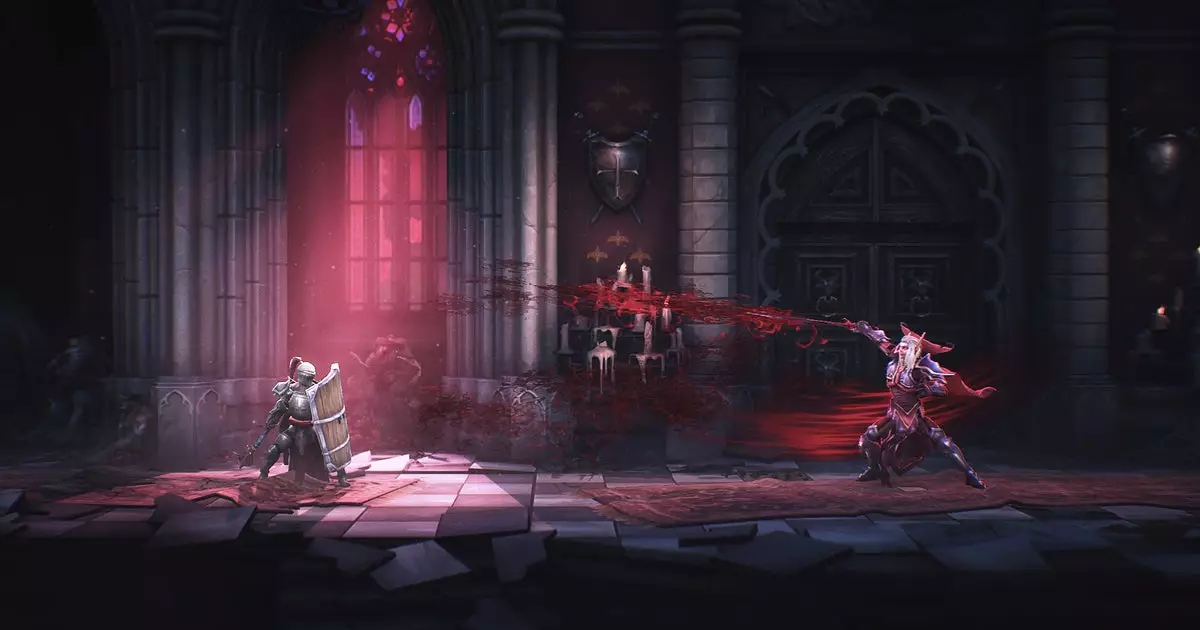Mandragora: Whispers Of The Witch Tree is capturing the imaginations of gamers, promising a unique blend of action and storytelling uncommon in the genre. Developed by Primal Game Studio, this 2.5D Soulsvania titles itself as an exciting jaunt across a dark world laden with despair, featuring combat mechanics similar to those found in the more established Soulsborne titles. However, Mandragora distinguishes itself through narrative depth, artistic visual style, and rich gameplay mechanics that coalesce to form an immersive experience.
The world of Mandragora is one steeped in grim lore and visual splendor. With its “painterly” art style, players are drawn into an environment that exudes both beauty and decay. The landscapes are lined with surreal imagery, dominated by burning spires and the remnants of civilization, living among heaps of skulls that remind players of the horrors that transpired. The environment serves not just as a backdrop but also as a narrative device—each frame encapsulating the theme of loss and the haunting echoes of humanity that once occupied this realm.
This duality is pivotal because it enforces the player’s emotional connection to the story, making the gameplay rich in context as they maneuver through perils. The art style, reminiscent of impressionist paintings, offers a unique sense of immersion that can transform the player’s experience from mere combat to a more profound journey through a broken world.
Character Development and System Design: A Choice-driven Adventure
Character customization in Mandragora goes beyond merely choosing a class; it allows players to explore nodular skill trees that introduce multiple layers of gameplay strategies. The design is crafted in a way that encourages experimentation, providing an array of options for players to tailor their character’s growth according to their gameplay style. This rich customization stems from the collaborative efforts of the development team, ignited further by Brian Mitsoda’s narrative vision.
The introduction of a traveling caravan inhabited by artisans who create essential gear not only enhances gameplay mechanics but also enriches the story. It gives players the chance to engage with the world-building elements, making them feel like active participants in Faelduum’s redemption arc rather than mere observers. This organic integration of crafting and customization echoes Mitsoda’s philosophy on character-driven storytelling, driving players to form attachments based on the unique skills and backgrounds of the artisans populating their caravan.
Mitsoda, celebrated for his work on the iconic Vampire: The Masquerade – Bloodlines, lends his narrative expertise to Mandragora. Potential players can anticipate an intricate storyline filled with moral ambiguity and impactful choices that challenge their perspectives. The game promises not just an epic adventure, but a chance to reflect on player decisions that resonate throughout the narrative arc.
The story’s framework suggests a world where joy is a scarce commodity, urging players to reclaim it from the hands of the monstrous entities that have taken dominion. This emotional undertow presents opportunities for rich character interactions and branching path decisions, assuring that players’ choices craft a distinct experience that can diverge radically from others’.
With the announcement of its release date on April 17th, expectations for Mandragora are soaring, but elevated anticipation comes bundled with critical assessment. Many gamers find themselves cautious when approaching titles tagged as Soulslike, fearing the pitfalls of derivative gameplay and uninspired narratives. Mitsoda’s focus on genuine character development and engaging storytelling can be a beacon of hope against this backdrop.
However, the indie gaming landscape is fraught with ambitious projects that promise depth but falter upon execution. The key will be in how well Mandragora implements its artistic and narrative aspirations without falling into the traps of over-ambition or underwhelming mechanics. Each facet, from the visceral combat to the compelling story, must coexist harmoniously to fulfill the vision set forth by Primal Game Studio.
Mandragora stands at the crossroads of innovation and tradition. With its commitment to immersive storytelling, artistic integrity, and engaging gameplay, it has the potential to carve a niche within a genre that often celebrates brutality over beauty. As players prepare to venture into Faelduum, they can only hope that their journey becomes one of discovery, both within the game’s world and within themselves.


Leave a Reply